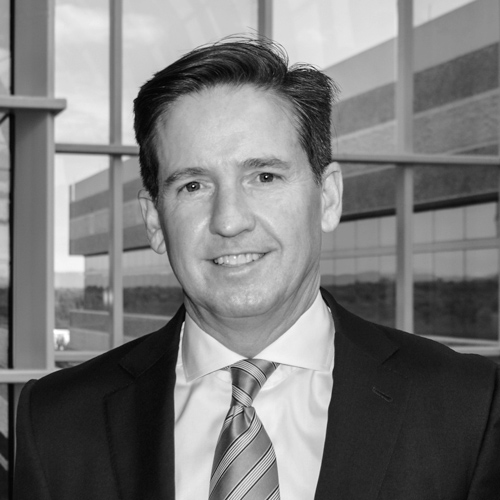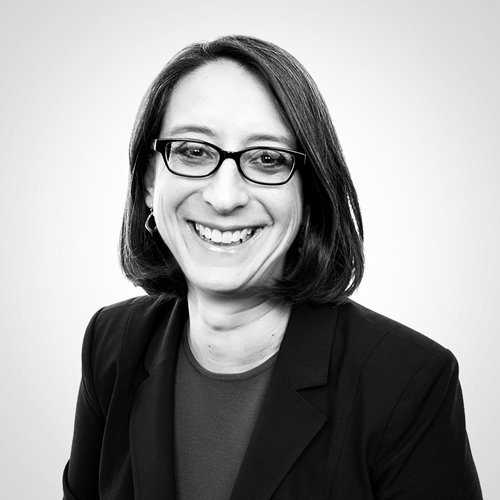I come from a family of lawyers. My dad (Philip Brown) was a lawyer. My grandfather was a lawyer, and I grew up in Washington, DC—where politics and policy were very much a part of my environment. Did I know I wanted to be a lawyer when I was five? No, but I grew up with a mother and father who taught us by the example that if you’re blessed with a good education, you should do something good with it. Public service was in my blood.
My dad died when I was in college, but it was his set of values and his deep belief in the US Constitution and the opportunities and freedoms in this country that made him my biggest mentor even after he died. He set a guide star for me. Seeing his passion and commitment to those values embedded them for me too. My dad marched with Martin Luther King Jr. in the March on Washington. Civil rights were very much a part of our dinner table conversation. We are lucky to live in this country with equal rights and freedom of speech. The values that are embedded in the US Constitution were values I grew up believing in, and I recognized that they mattered. If you believe in these values, and you see that people don’t have voting rights or don’t have equal rights in some way, it makes you want to go do something about it.
So I suppose it was no surprise that I had a public interest fellowship after law school, did pro bono work at Shea & Gardner, and later ran the American Constitution Society for Law and Policy, whose mission is to promote the vitality of the US Constitution and the fundamental values it expresses: individual rights and liberties, genuine equality, access to justice, democracy, and the rule of law. My time in government was another way of expressing my deep belief in our democratic system.
I went to law school because I saw law as a tool that would enable me to make my community better and make a difference in the world. When I was interviewing with one New York firm and I asked them if pro bono work counted towards billable hours. They said no, and I asked, “How do you expect to encourage people to do pro bono work if you don’t let them count towards your hours?” It was no surprise that I didn’t get an offer from that firm, but it was important that I asked that question. Don’t be scared to ask questions about things you care about. For me, that question meant that I went to Shea & Gardner (now Goodwin Procter) who did care about that kind of work.
I learned well from having mentors. After finishing my public interest fellowship, I decided to go to a firm rather than to continue doing public interest work because I knew I learned best from having mentors.
One of my first cases was for the United Mine Workers of America Health and Retirement Funds. I have a very strong memory of going down to small mining towns in West Virginia and interviewing miners with serious health problems. I was just out of law school, and I still had to learn how to be a lawyer. Those cases taught me both how to be an advocate and about the human side of law. My mentors at Shea & Gardner taught me that writing a really good brief is about telling a good story. You have people at the heart of the case, the facts, and the law. But then you have to translate that. You say, “Now, how do I put that into a compelling legal argument that gets the relief I want for my client?”
Take educated risks. Don’t be scared to take smart risks in order to do what you really care about. When I left Shea & Gardner for a career position at the Office of Legal Counsel (OLC) at the Department of Justice, some of my partners thought I was absolutely out of my mind for giving up my partnership at the firm. For me, it was about taking an educated risk for something I felt very strongly about. That doesn’t mean do something reckless. But if you have a passion, and you think the risk is worthwhile, do it. I went to OLC, and then nine months later I was in the White House as deputy counsel to then-Vice President Al Gore. Could I have predicted that? No, but it was about taking a risk and doing the best job that I could.
My role at the White House was my first in-house position. I learned very quickly that when your client asks you to do something, you don’t say, “No.” You say, “Well, you can’t do it this way, but let’s talk about what you can do. Let’s talk about how you can accomplish your goals, even if we have to do it in a slightly different way.” It’s not that you become a “Yes” person by any means. But if you just say, “No,” people aren’t going to come to you any more. When I did say “No,” they knew I meant it because they knew that I was on their side.
Working at Georgetown, like working in the Clinton and Obama administrations, brought together my love of being in-house counsel with my desire to use law to make the world a better place. With its mission of forming men and women in the service of others and its commitment to social justice, Georgetown teaches the next generation to lead and make a difference in the world.

